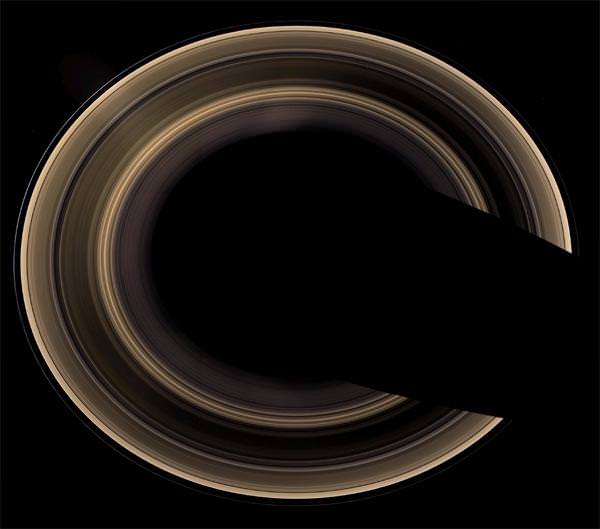Saturn doesn't have a solid surface, so it's impossible to actually walk on the surface and feel the gravity of Saturn. But let's pretend that you could. What kind of force would you feel if you could actually stand on the surface of Saturn and walk around.
Even though Saturn has much more mass than Earth, second in the Solar System only to Jupiter, it also has the lowest density of all the planets in the Solar System. When you spread that mass across the entire volume of Saturn, the actual gravity pulling at any spot on the surface is only 91% of Earth's gravity. In other words, if your bathroom scale said 100 kg on Earth, it would say 92 kg on the "surface" of Saturn.
Just for comparison, if you wanted to walk on the "surface" of Jupiter, you would experience 2.5 times the gravity of Earth. And if you walked on the surface of Mars, you would experience about 1/3rd the gravity of Earth. You would have 1/6th your weight on the Moon.
What contributes to all this Saturn gravity? Saturn is largely comprised of hydrogen and helium, which came together at the beginning of the Solar System, gathered by their mutual mass. It's the same composition as Jupiter and the Sun. These primordial elements were formed at the beginning of the Universe in the Big Bang.
Here's more information about the
gravity of Jupiter,
and the
gravity on Mars
.
This page will help you
calculate
the gravity on Saturn, and this cool site lets you
calculate gravity
on all the planets.
We have recorded two episodes of Astronomy Cast just about Saturn. The first is
Episode 59: Saturn
, and the second is
Episode 61: Saturn's Moons
.
 Universe Today
Universe Today
